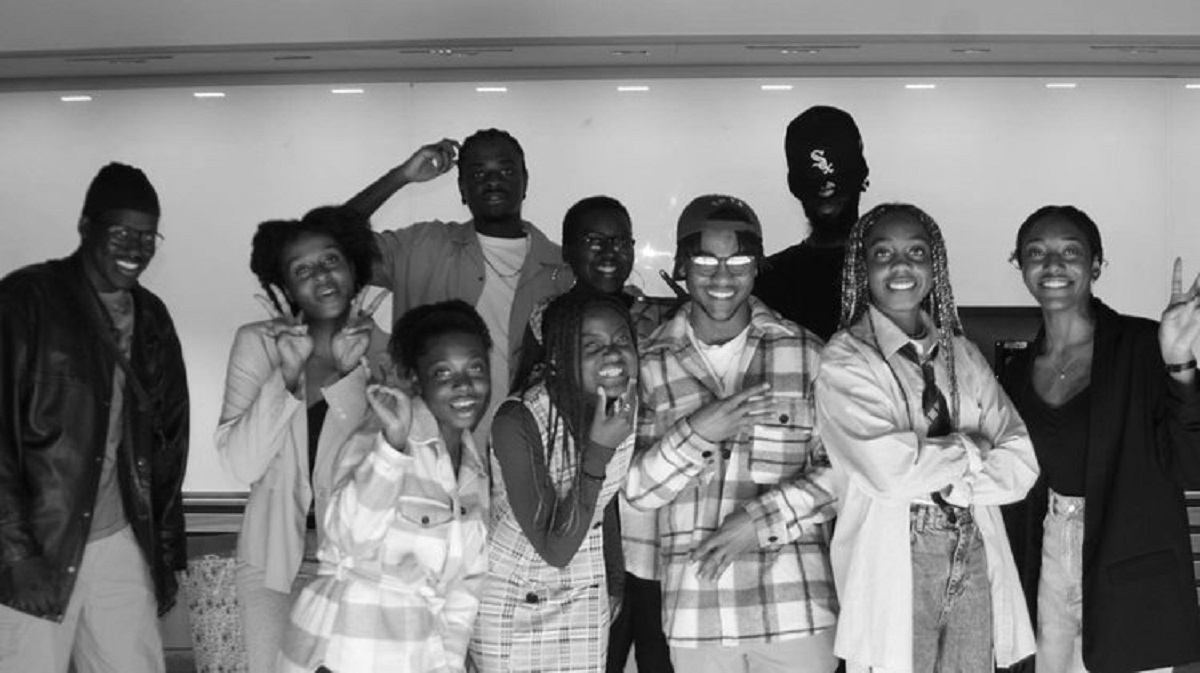How do Black role models and networks change the landscape for young people? What are the benefits of explicitly Black spaces for university students? And what impact have the trailblazers of the 1980s Black Arts Movement had on today’s young creatives? Warwick University student Xaymaca Awoyungbo speaks with author Sandra A Agard and explores Britain’s young Black creative networks.
“If you can see it, you can be it” has become something of a cliché in the last few years. From a lack of racial diversity in the Lionesses’ Euro-winning team to singer and actress, Halle Bailey starring in the Little Mermaid remake, cultural commentators and trolls on Twitter, have debated the importance of representation.
The emphasis on seeing role models captures the zeitgeist. We need to picture something before it happens. We need to speak it into existence. We need to manifest it.
Of course, it helps if we’ve seen someone similar to us do what we’re aiming for. It gives us the confidence to believe that our dreams are not just dreams, but they can turn into a reality. It’s the reason why I’ve looked up to rappers-cum-entrepreneurs throughout my childhood.
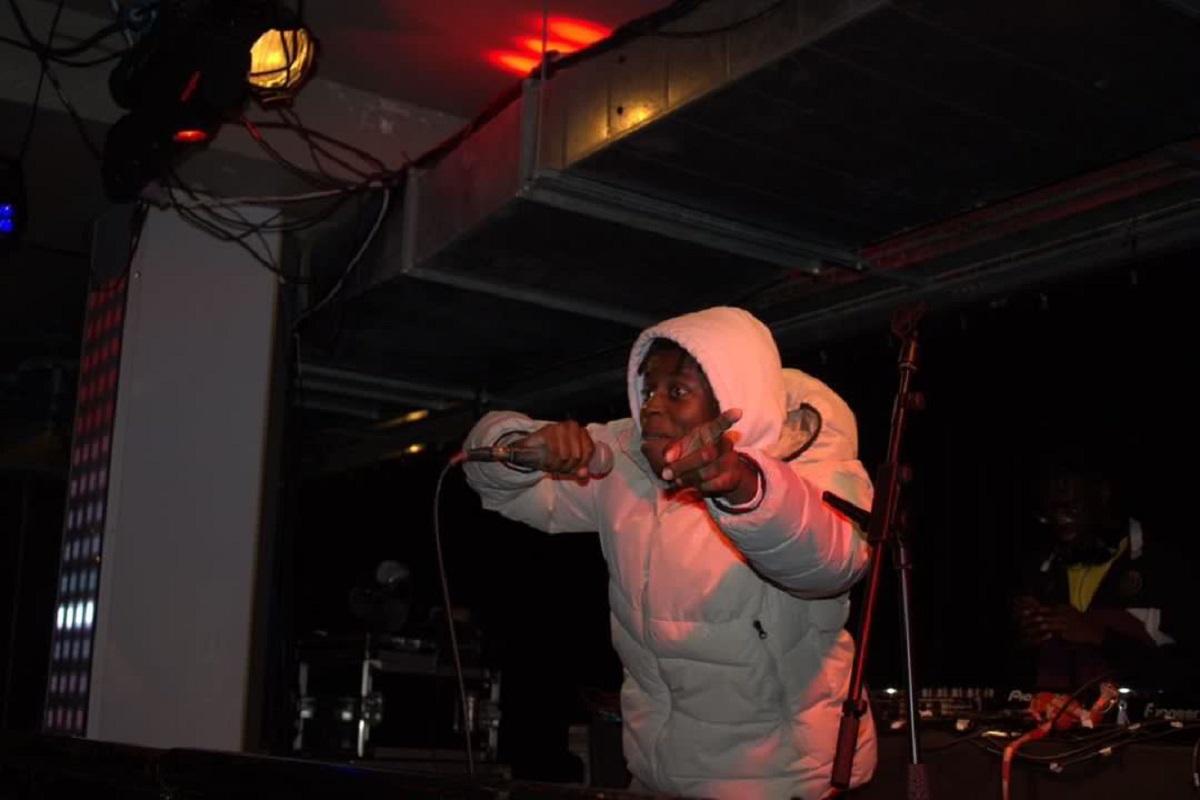
A black [untitled] event.
A recent episode of Alan Yentob’s imagine series on the BBC was dedicated to British African-Caribbean artist, Sonia Boyce. In February 2020, Boyce became the first Black woman to represent Britain at the Venice Biennale. Just two months later, she won the top award at the exhibition, the Golden Lion prize for her piece entitled Feeling Her Way – a celebration of Black British female musicians.
The prestigious award doesn’t tell the full story, however. After discovering her penchant for drawing at a young age, Boyce earned a place at the Stourbridge College of Art in 1980. As one of the few Black people at the college, she serendipitously came across a poster for ‘The First National Black Art Convention’ hosted by the BLK Art Group.
In the documentary she explains that the convention was ‘a room of over 200 Black artists’ from young art students to professionals. ‘They were like teenagers. They organised this national conference at Wolverhampton Poly[technic] and then I met lots of people and I became part of a network’.
The legacy of the network lives on today as Boyce is still friends with two members of the group, Claudette Johnson and Lubaina Himid.
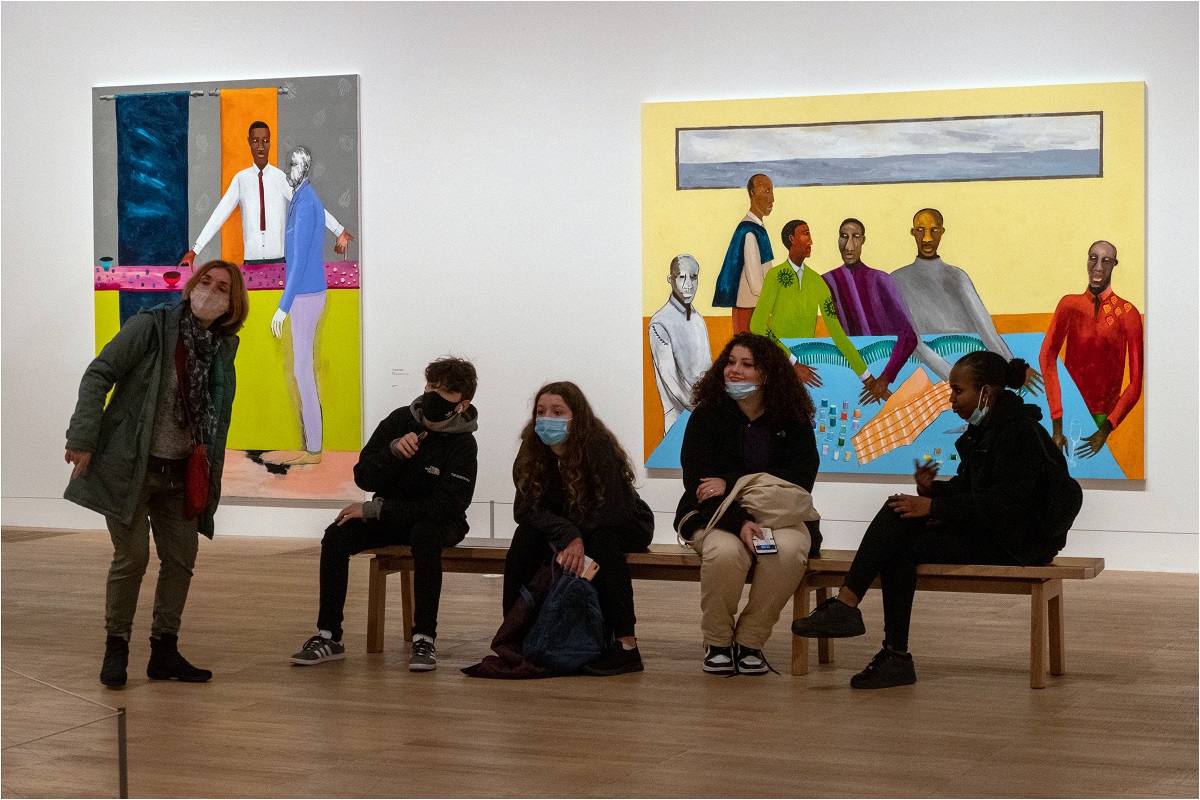
Lubaina Himid exhibition at Tate Modern, London. Picture by Maureen Barlin.
Johnson is an acclaimed artist in her own right and she was a founder of the BLK Art Group. In seeing Johnson’s work, Boyce ‘felt not only recognition’ but the feeling of ‘oh my goodness, someone can do this!’ Being part of the network gave her the belief to continue creating her own work.
Himid was one of the first artists involved in the British Black Arts Movement and in 2017 she won the Turner Prize. Boyce described how Himid encouraged her to really become an artist by repeatedly asking Boyce for her slides. After finally relenting to Himid’s requests, Himid organised an exhibition at The Africa Centre which included Boyce. The network also provided her with support in moments of doubt.
The value of such a network shouldn’t be underestimated, especially during the 1980s when a series of uprisings between the police and Black communities spread across the country. During those years, Britain kept celebrating firsts. Boyce was the first Black woman to become a part of the National Art Collection when her piece, Missionary Position II was acquired by the Tate in 1987. Boyce was also the first Black woman to have an exhibition at the Whitechapel Gallery in 1988.
Over twenty years later, the firsts are, sadly, still a sign of general exclusion.
From Himid becoming the first Black woman to win the Turner Prize in 2017 to Bernadine Evaristo becoming the first Black woman to win the Booker Prize in 2019, it seems Black artists are just receiving their flowers from predominantly white institutions.
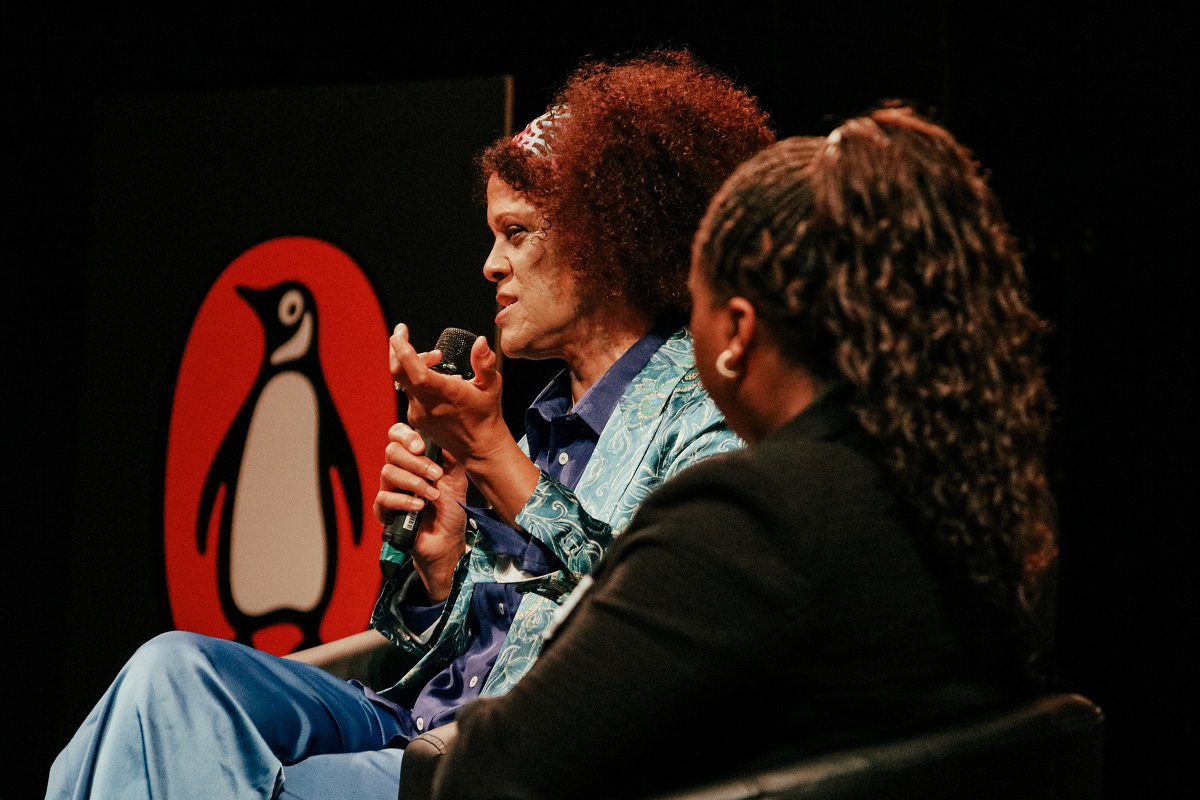
Bernadine Evaristo. Image by Thomas Tallis School.
Recently recognised by one such institution is storyteller and author, Sandra A Agard. In 2022, she was elected as an Honorary Fellow of the Royal Society of Literature, and in the same year she won the Royal Society of Literature’s Benson Medal (previously won by JRR Tolkien).
Speaking to me over Zoom, she says she’s “glad to see people like Bernardine, Sonia and, yes, myself get the recognition”. She insists that “you don’t do it for that” however.
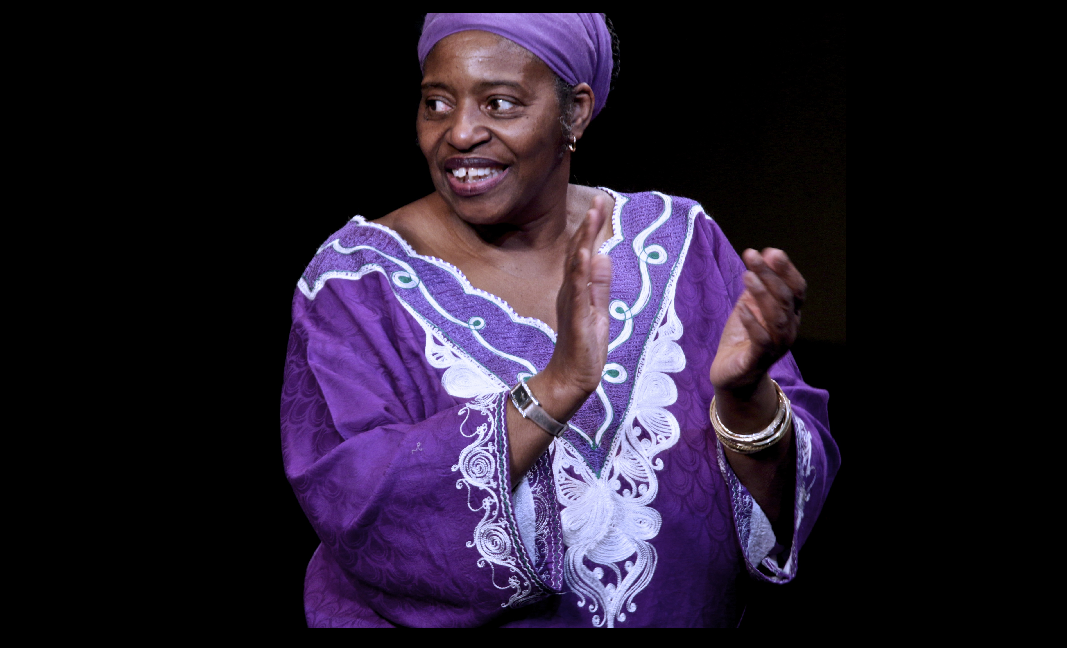
Celebrated author Sandra A Agard
Luckily, Agard, now in her mid-sixties, had a strong support network from an early age, whether at home or at school. Despite struggling to identify when her journey in writing and storytelling began, she’s able to list off names of teachers, clubs and bookshops from her adolescence with ease. Agard has clearly made it her mission to remember the people who helped her along the way. As if it were yesterday, she vividly recalls a masterclass she participated in with the Commonwealth Institute.
It brought together a group of young Black writers from London community bookshops to write a book called Times Like These, under the instruction of acclaimed Bajan poet, Edward Kamau Braithwaite.
“We self-published [the book] because that’s what you did in those days. The publishers weren’t publishing your work so you did it yourself.”
This loose comment highlights the importance of Black organisations and networks. Although Agard is now the author of children’s books, including her debut, Trailblazer: Harriet Tubman: A Journey to Freedom, it wasn’t easy to get her work published when she was starting out.
“I remember telling an English woman in publishing that I’m writing science fiction and she told me, to my face: ‘Black people do not write science fiction.’”
She pauses for a second to let me digest that statement.
“We always had to write about trauma [for mainstream publishing houses]. We wanted to write about other things and that’s what writing and publishing our own books gave us. It gave us the will to publish what we wanted to publish.”
The value of publishing what you want still resonates with me and many of my peers today. I recently participated in a writing workshop hosted by the University of Warwick’s collectives, The Reclaim Collective and black [untitled].
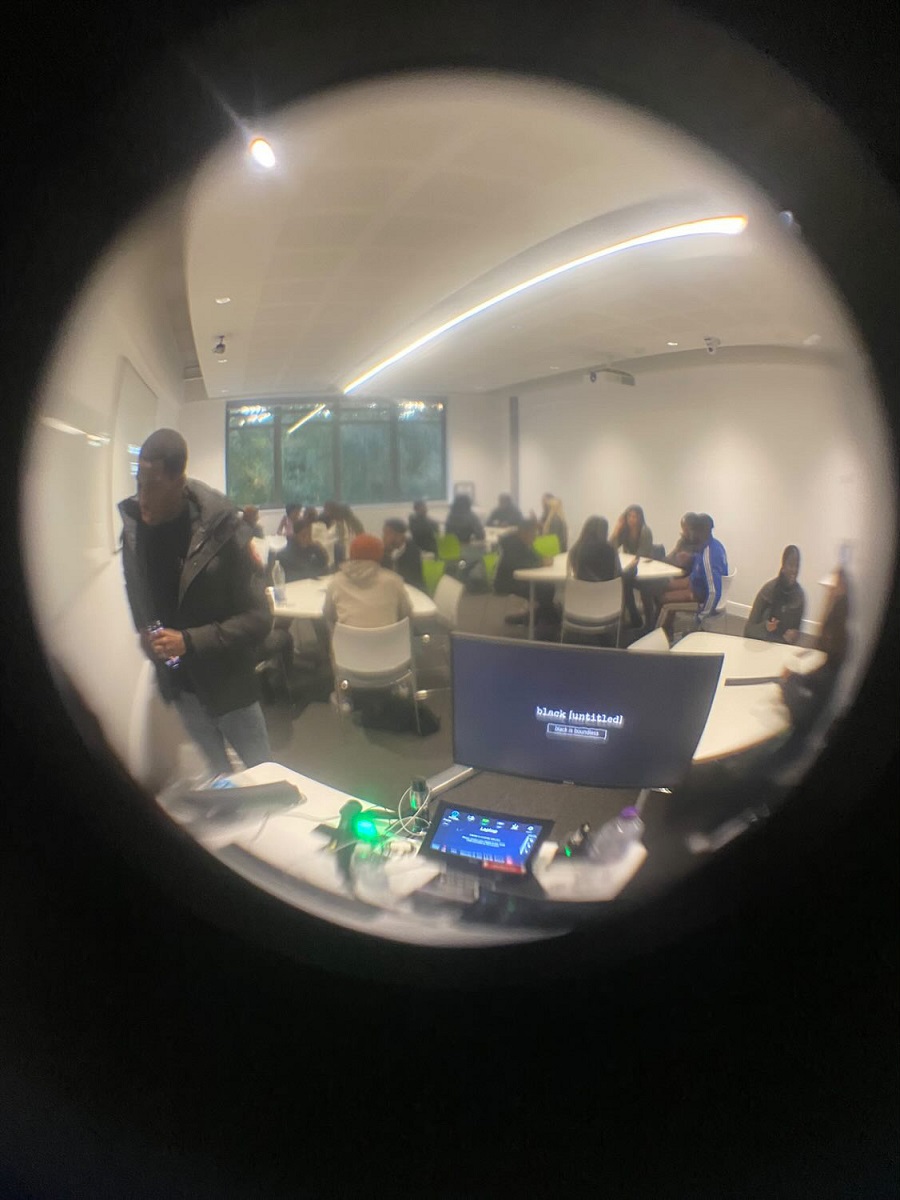
A black [untitled] workshop at the University of Warwick.
Speaking with members of The Reclaim Collective, I learnt about the self-publication of their poetry anthology, On Blackness and Belonging. Written by Warwick students, the book is an expansion of the poetry slams that the group held since its creation in 2021.
Head of The Reclaim Collective, Nosa Charles-Novia created the anthology because she “was driven to try and see more art and poetry which accurately chronicled experiences of those from the margins.” In turn the writers appreciated the opportunity to reflect on their identity in a supportive space. French and Linguistics student, Triumph Arach said “it greatly improved my student experience by introducing me to gifted poets, writers and spoken word artists whose works I might not have otherwise discovered.”
In many ways the writing workshop mirrored the creation of the anthology. A group of us, Black students, gathered in a café, listening to neo soul over the speakers as we wrote about the Black self in our preferred medium.
Once we’d finished writing our pieces, we volunteered to perform. As I sauntered to the microphone in the university’s Curiositea, tea room, I was transported into the jazz club scene from Theodore Witcher’s 1997 film, Love Jones. On that stage I was at home and free to express myself.
Free, boundless expression is an idea that black [untitled] has championed since its inception in 2022. The collective has put on a number of workshops and showcases of Black talent, often collaborating with groups like The Reclaim Collective and Black Women’s Project.
Although there have been spaces for a range of creatives at Warwick before, Jahzara Musau, one of the founders of black [untitled] says:
“There was a big gap in Warwick, specifically for Black creative talent. As a collective, we define Blackness as boundless. It was important for us that Black talent was able to grow, in a free-flowing space, whilst being comfortable and authentic in our identity.”
With just over half of Warwick undergraduates identifying as Black, Asian or minority ethnic, some may question the need for an explicitly Black space on campus. The stats seem to show that Warwick is diverse and inclusive. But breaking the statistic down further we find that only 8.2% of the student population identifies as Black.
For Nyasha Kunorubwe another founder of the collective, “It’s just important to be able to have that space where you don’t need to explain yourself.”
That doesn’t mean that other people aren’t welcome. Jahzara maintains that while black [untitled] is a space for the Black community to express themselves, “regardless of race, anyone can watch and support our collective.” She adds: “We want to highlight the diversity of identity in a range of mediums and narratives – something we hope to see in the creative industries soon.”
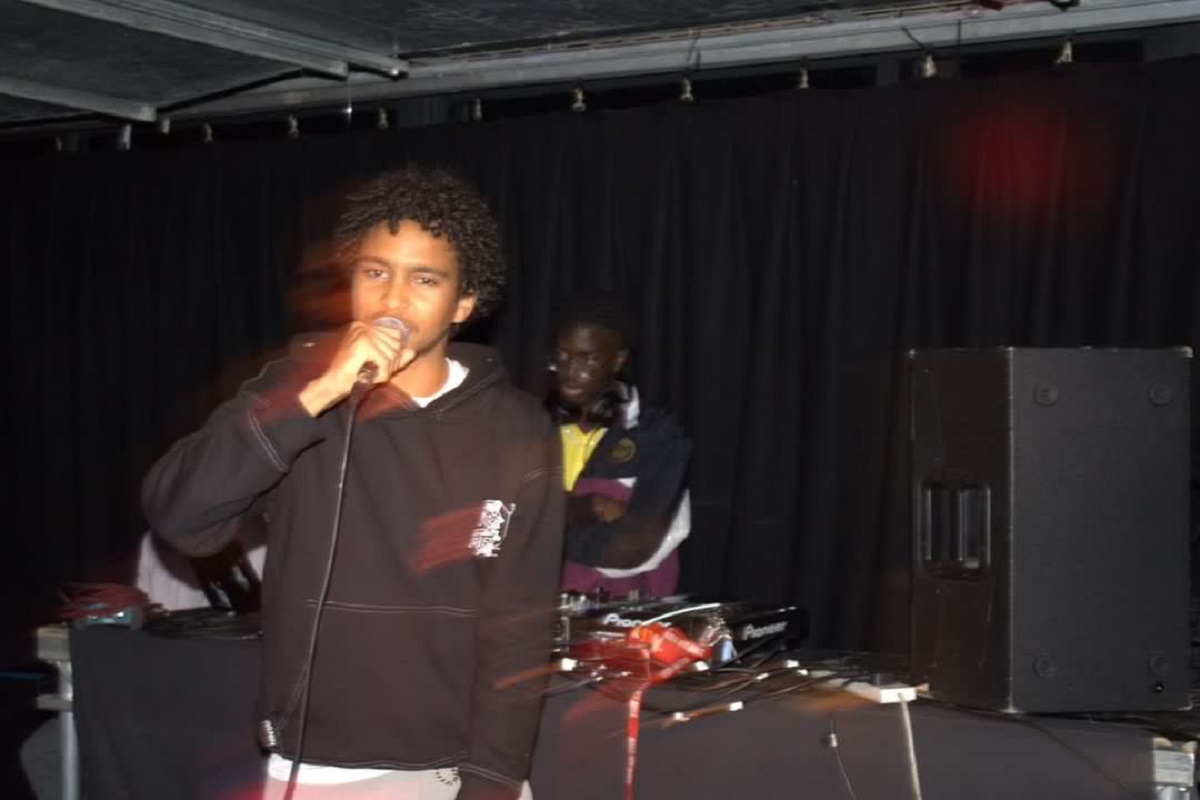
These types of communities can be found at other universities around the UK too. A few miles down the road from Warwick, the University of Birmingham is home to the collective HARD/FIND*.
HARD/FIND*, which was established in 2019 by members SPTMBR, Rackka, Faizah and JB3, is currently an Instagram page for creatives to connect with each other and find inspiration. The page posts content of pioneering fashion designers, musicians, designers and all sorts of artists, encouraging their followers “to never stay in one box”.
Founding member SPTMBR tells me it was inspired by blogs like Hypebeast and magazines like Complex. For him HARD/FIND* is a “safe space where people can look into photography, or they can feel free to look into fine art and all these things”. The page is “informative more than anything” but a key role of the platform is to shine a light on the work being done by the collective’s members.
When I tell Agard about the work my peers and I are doing at Warwick and other universities, she contends that we’re the legacy of her and many others who paved the way for us.
Things I find normal, like attending a Student Union-sponsored, Law School-hosted Black Arts Showcase were not normal 40 years ago.
She says: “The legacy’s about just getting on and doing it, surrounding yourself with positive energy. There’s always going to be people out there who will help you.”
Read more:
